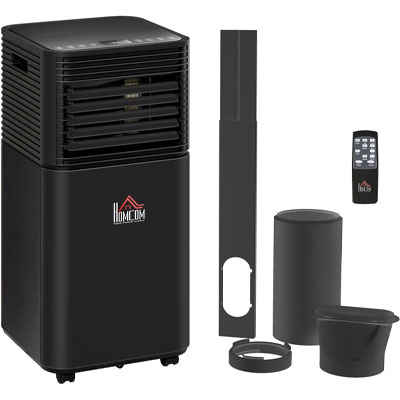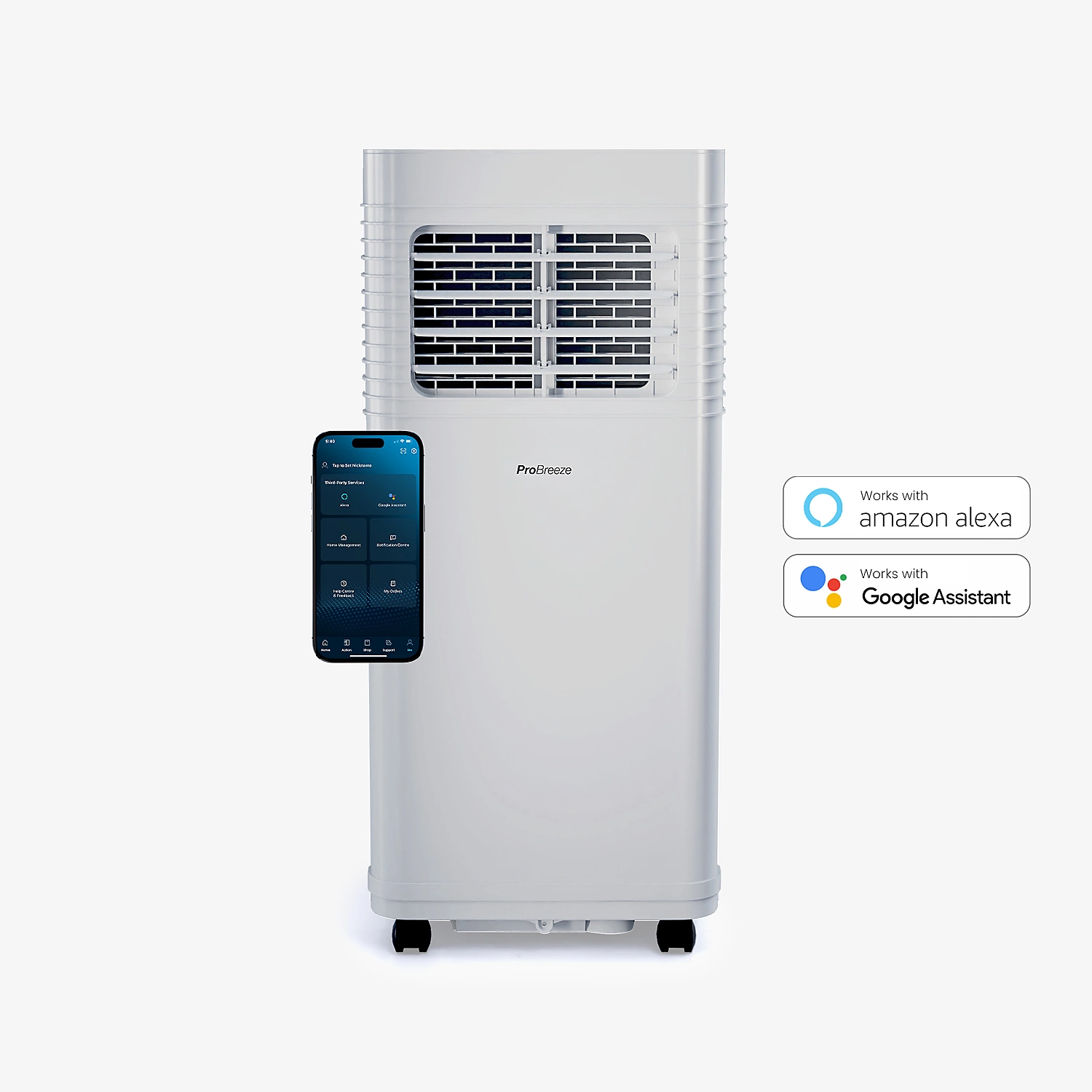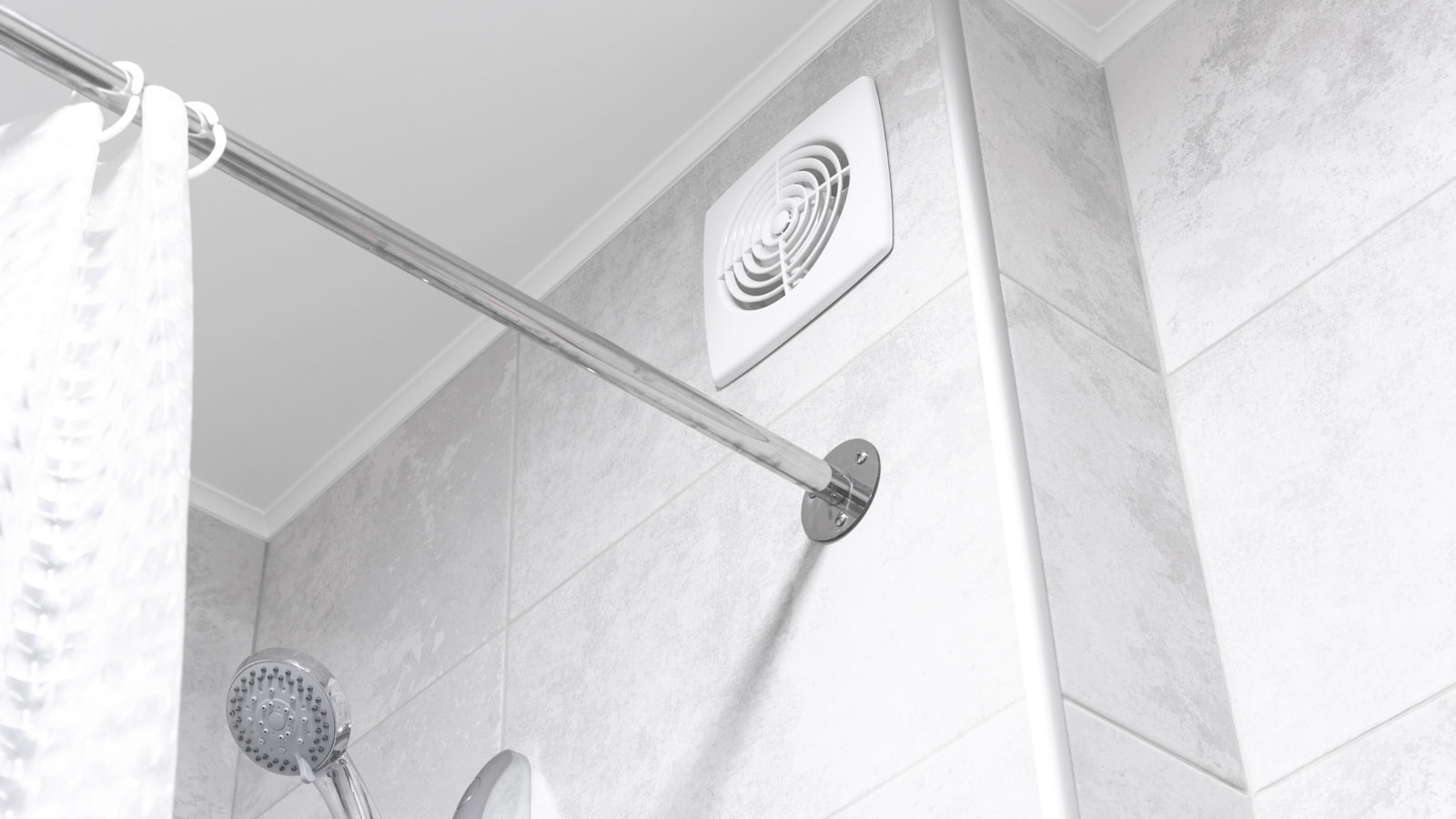Do you know the main types of air conditioning? All the options to consider in the face of rising temperatures
There are three main types of air conditioning to consider if you want to keep your home cool – our experts explain everything you need to know

Bring your dream home to life with expert advice, how to guides and design inspiration. Sign up for our newsletter and get two free tickets to a Homebuilding & Renovating Show near you.
You are now subscribed
Your newsletter sign-up was successful
It comes as little surprise that more and more homeowners are researching types of air conditioning of late. Whether rising temperatures are making day-to day tasks such as cooking dinner a little more tiring, or you are struggling to sleep in a due to a bedroom that refuses to cool down at night, home air conditioning could be the answer to your woes.
While UK homes have, historically, rarely been fitted with built-in air conditioning units, our climate is changing and the availability of domestic systems is increasing meaning it makes sense to consider some kind of cooling system.
Here, we explain the main types of air conditioning worth considering, whether building from scratch or upgrading your existing home.
What types of air conditioning are worth considering?
In general, there are three main types of air conditioning that experts recommend looking into for domestic set-ups in order to prevent overheating.
"We typically work with three main types of air conditioning systems – split systems, multi-split systems, and portable units," explains Martyn Fowler, founder of Elite Renewables. "Each has its place, depending on the size of the home, budget, and how often the system will be used."
If you are longing for a more comfortable climate in your home all year long, read on to find out the best type of air conditioning for your needs and budget.

Founder of Elite Renewables, Martyn Fowler is one of the UK's leading renewable technology experts, working with heat pumps for the last 2 decades. His passion for decarbonisation matched with a deep technical experience of the technology make him one of the industry's go-to experts for all things renewable.
Split air conditioning systems
If you want a permanent unit that won't cost the earth but will still deliver powerful cooling where it's needed, a split system could be for you. While the air conditioning installation is a little more involved than with a portable unit, it remains fairly straightforward, although you will need a registered F-Gas engineer to fit it.
Bring your dream home to life with expert advice, how to guides and design inspiration. Sign up for our newsletter and get two free tickets to a Homebuilding & Renovating Show near you.
"Split systems are the most common for domestic use," picks up Martyn Fowler. "You’ve got one indoor unit connected to one outdoor unit. They’re efficient, relatively quiet, and perfect for cooling a single room.
"Wall-mounted air conditioners, typically part of a split system, are fixed installations designed to cool (and heat) single rooms quickly and silently and are a favourite among homeowners who require year-round temperature control without compromising on aesthetics," explains Stephen Day, a home cooling expert from iHeat. "They're usually mounted high on a wall and are connected to an external compressor, so they don't take up any floor space, and the noise, which for the most part is generated outside, is generally negligible. The majority of newer models run as quietly as 20-24 dB – quieter than a whisper, and because they use inverter technology, they'll keep your room at the same temperature without the constant on-off cycling that's both annoying and inefficient."
Wondering what this kind of unit will set you back?
"Installation costs usually start from around £1,200 to £2,500, depending on the unit size and setup complexity," reveals Martyn Fowler.
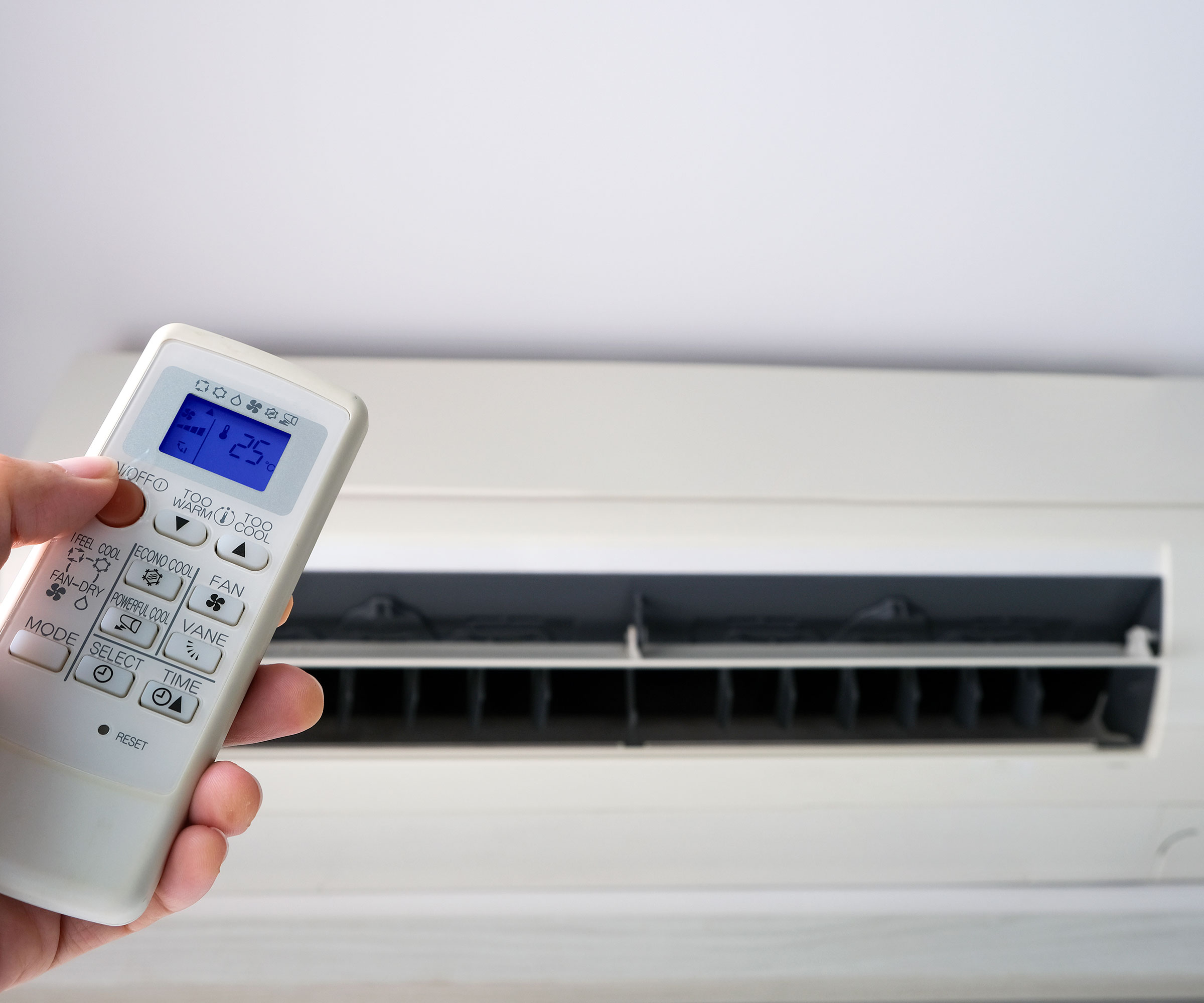

Stephen Day is the Operations Manager at iHeat, with over a decade of experience as a qualified heating engineer and home cooling expert. He specialises in efficient, modern solutions for heating and air conditioning across the UK.
Multi-split systems
If you want more than one unit in your home and require greater flexibility in terms of how you can control the temperatures in individual spaces, a multi-split system is well worth considering.
"A multi‑split setup connects several indoor units to one outdoor compressor," explains Martyn Fowler. "This gives you room‑by‑room control and better energy efficiency."
A single outdoor unit can often have as many as 10 indoor units connected to it, each of which can be controlled separately.
"Installation usually starts at around £3 000, but you get more flexibility and comfort throughout your home," points out Martin Fowler.
Portable air conditioning units
If you just want the option of occasionally cooling a room and don't love the idea of spending a fortune on something you feel you might not use all that often, by choosing one of the best portable air conditioners, your needs could well be met.
"Portable units plug in and vent through a window," explains Martyn Fowler. "They are perfect for temporary or rented spaces where installation is not possible."
"They're essentially plug-and-play appliances on wheels, usually with an exhaust hose that needs to be vented outside of a window," picks up Stephen Day. They do come with some compromises compared to a wall-mounted model. The cooling potential is generally limited to small rooms, and even high-BTU models will struggle to cool big rooms or older homes with poor insulation.
"Because everything, including the compressor and fan, is contained in the single unit, the noise levels are louder, often 50 dB or more, which can be bothersome in bedrooms or offices," adds Stephen.
"Prices generally range from £200 to £600, but they do run louder and cost more to run compared with fixed systems," says Martyn Fowler.
Shop portable air conditioners
Ducted air conditioning systems
If you are building a house from scratch or carrying out extensive remodeling or renovation work, it might be worth looking into having a ducted system installed.
"Some homes opt for ducted systems, but they’re rare in UK homes due to the lack of space for ductwork," explains Martyn Fowler. "They're more suited to new builds or larger renovations where you can plan the infrastructure in."
Ducted systems often use heat pump technology and feature an outdoor unit and single indoor unit fitted within the loft space or sometimes in a basement. This unit is connected to multiple rooms, with the concealed ductwork leading to discreet vents.
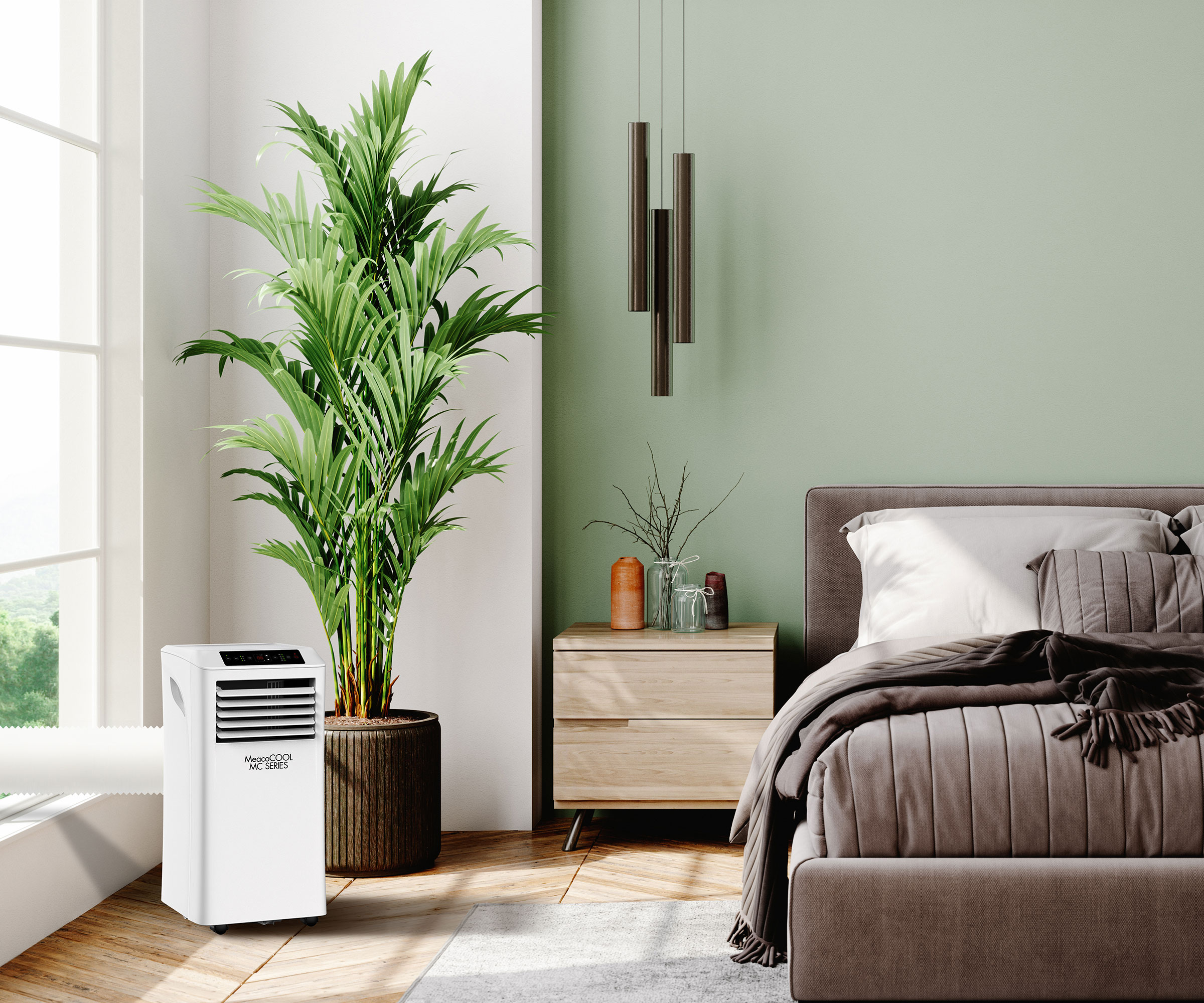
Which type of air conditioning is best for me?
Still undecided which option is best for you in terms of wall-mounted vs portable air conditioning?
"I tend to steer people towards wall-mounted systems if they are homeowners (as opposed to renters), constantly need to cool (or heat) their home, value their home’s aesthetics and prefer a system that is efficient and quiet," advises Stephen Day. "These are a long-term investment, and in today’s climate, both environmentally and weather-wise, they make a lot of sense. You also get the benefit of smart controls, zone comfort, and much less intrusion into your interior design."
"Think about how much you will use your system," suggests Martyn Fowler. "In the UK air con is still mainly a summer luxury, but with hotter summers on the horizon, investing in a well‑rated system with low running costs really pays off. Check energy efficiency ratings, noise levels and the cost of installation before deciding."
FAQs
What type of air conditioning is the cheapest?
When it comes to air conditioning costs, it is true that portable air conditioners are cheaper to buy than wall-mounted units, but there is a little more to it than this, including running costs.
"You can get a good portable unit for £300 to £500, and sometimes less," says Stephen Day. "They also require no installation, which is a big appeal to renters or those in listed buildings where it can be impossible to get a wall-mounted set-up.
"However, while portable air conditioners appear cheaper upfront, that’s not the whole story," continues Stephen. "Operating expenses add up fast, and these units typically consume between 800 and 1,500 watts an hour, and at current UK electricity prices, which can be anything between 10p and 30p an hour. Also, because they typically lack inverter technology or precise thermostats, they might end up running longer and harder than is necessary, making them more expensive over time."
If you have decided a fixed air conditioning unit isn't right for you, be sure to look into how much a portable air conditioner costs to run before making your final choice.
Natasha was Homebuilding & Renovating’s Associate Content Editor and was a member of the Homebuilding team for over two decades. In her role on Homebuilding & Renovating she imparted her knowledge on a wide range of renovation topics, from window condensation to renovating bathrooms, to removing walls and adding an extension. She continues to write for Homebuilding on these topics, and more. An experienced journalist and renovation expert, she also writes for a number of other homes titles, including Homes & Gardens and Ideal Homes. Over the years Natasha has renovated and carried out a side extension to a Victorian terrace. She is currently living in the rural Edwardian cottage she renovated and extended on a largely DIY basis, living on site for the duration of the project.

